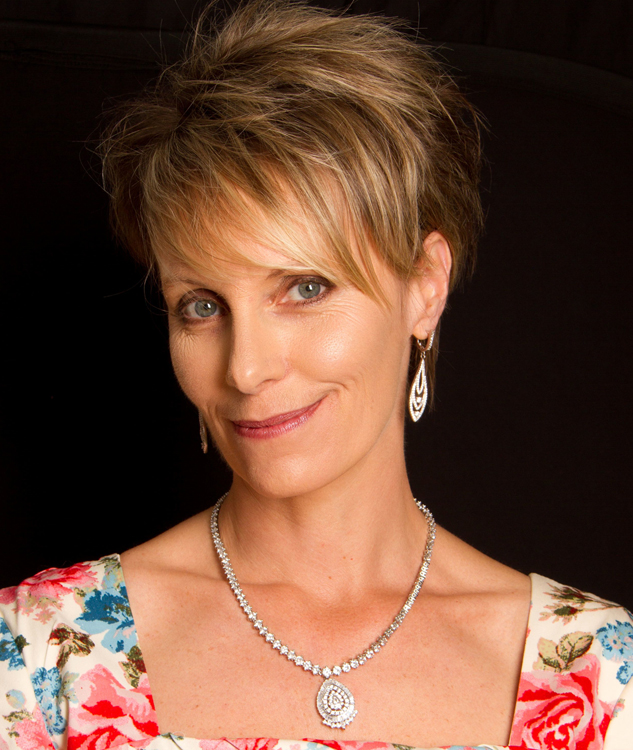
My perceptions of motherhood prior to the birth of Amelia were filled with moments of touching, loving, holding, breathing in her smell, caressing and caring, however, the reality that I was faced with was so very different. For three months I traveled 90 minutes each way to spend 12 to 14 hours sitting at my daughter’s incubator. There was very little touching or caressing her tiny frame. The only smells detectable were the smells of the hand sanitizers, the hand wash soaps and the unit’s cleaning products. I didn’t get to hold Amelia until she was four weeks old even though my baby girl lay inches away from my tear stained face. I reached out to her in my head and heart and I’m certain that you could hear my heart beating in my chest every time her monitor alarms triggered.
For all the amazing lifesaving work that takes place in the Neonatal Intensive Care Unit and despite the mayhem as the all too often under resourced staff struggle to cope with the demands of the NICU, it can be the loneliest and most disempowering place for parents. Having to request permission to enter the NICU, abiding by the “visiting time” rules, having to ask the staff for their permission to hold your baby, and feeling in the way as the staff go about their daily duties, only serves to chip away at the rapidly disintegrating mental and emotional health of parents. Every single element of parenthood as it ought to be is turned on its head and in many instances the parents that remain are mere shells of their former selves.
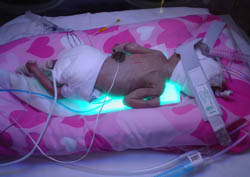
The pain of watching from the sidelines as strangers hold your infant, care for your infant, touch your infant and do what you the mother should be doing rips through a parent’s heart day after day. It all felt wrong to me, but because my baby was in the care of the unit, I felt selfish and ungrateful for having these feelings and didn’t believe that I had any right to raise my concerns with the very staff that were saving my child’s life.
Many’s the hour I spent pondering at Amelia’s bedside of how it ought to have been. I wanted to feel like a Mother, I was after all a Mother in name and I wanted to feel welcomed in the environment where my child was being cared for. I didn’t want to have to seek permission to visit my child, I wanted to be the one to hold her, to care for her, to feed her. I didn’t want to feel anymore of a failure that I already felt. I just wanted to feel needed and useful. How would I feel if she didn’t survive? I would not have had any opportunity to mother her and I would have failed yet again… it didn’t bear thinking about.
Day after day I got to know my daughter as best I could by observing her across the “divide” of her incubator. I noted that Amelia always seemed very agitated, never remained still for terribly long and her limbs were constantly flaying about. Her behaviour concerned me as I felt that someone so small ought to be spending her time sleeping and growing her tiny body instead of exploring the far corners of her incubator. At times I would reach inside the incubator and attempt to calm her, but these episodes never lasted very long and Amelia would often reject my approach, something that compounded the rapidly increasing feeling of failure. As nobody else seemed concerned, and I felt that her caregivers knew best, I never raised my concerns. I was struggling with the void that was developing inside of me, the one that longed to feel part of my daughter’s life, to be able to nurture her, yet I couldn’t shift that niggling intuition that was growing intensity as each day passed.
To fill my days I began to keep a journal in which I recorded my thoughts and observations and over time I began to identify behavioural patterns that were being repeated by Amelia. She resembled a child that had been “plugged in” – every sound in the NICU would elicit an over exaggerated response from her and I struggled to comfort her.
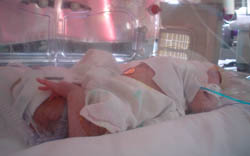
A few weeks into our NICU journey a young nurse mentioned a new concept of care that she had read about called “NIDCAP”. She created a crude looking nest for Amelia and shared what limited knowledge she had of NIDCAP with me. A few hours of searching on the internet for further enlightenment and finally some of Amelia’s behaviours that had disturbed me from outset were beginning to make sense. I noted her pushing out against the nest and appearing calmer when doing so. I began to feel a semblance of control and understanding. My new found empowerment didn’t always meet with enthusiasm from within the NICU as I began to find my voice and speak on my infant’s behalf. A chance conversation with a NICU nurse had restored my belief in myself and I began to make sense of the events which had led us to this juncture.
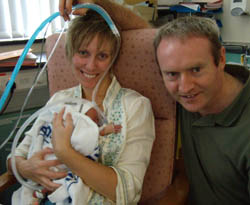
Amelia’s NICU stay was marked by several resuscitation episodes: many infections that brought her to the brink of death, four weeks on a ventilator, seven weeks on CPAP, several unsuccessful attempts to commence feeds, eight blood transfusions and lung suctioning every few hours which broke my heart to observe but the instant I began to understand that I as a parent could make a valuable contribution to her care in a way that no healthcare provider could, gave me the impetus to stay positive and adopt the mantle as her advocate. Seven weeks of observing every breath she took, every move she made, every skin colour you could imagine ultimately saw me flag a rapidly developing and life threatening medical situation with Amelia’s nursing staff, which resulted in a timely intervention and saved her life.
Life in the NICU is a surreal microcosm where we find ourselves living out our daily lives in the pockets of strangers and where every breath and ounce counts. It’s a world where we bond with parents who share the most emotional of life’s experiences with us, where we celebrate the milestones we never knew existed before our preterm birth and where we cry tears for families whose hearts are broken forever. It’s a place where lifetime friendships are born and where destinies are changed.
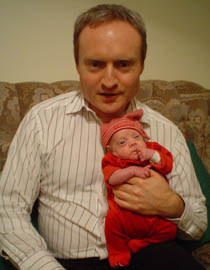
Amelia was discharged from the NICU on Christmas Eve 2006, one of the most terrifying and exciting days of our lives. Neither myself nor my partner, John, felt prepared for her homecoming and would have gladly brought her home still attached to all her monitors and accompanied by the NICU staff. After three months there was still that underlying doubt in our abilities as parents, but part of us so desperately needed to be a normal family.

I often reminisce at the photographs of those early days at home with Amelia and wonder if we knew what coming home from the NICU would mean for our family, the developmental challenges that lay ahead for Amelia and the obstacles that we would need to overcome in ensuring that our daughter got access to the various therapies, would we have appeared so carefree and happy. The legacy of the NICU journey had only just begun to raise its head during our three month stay and it would gather momentum in time.
Parenting Amelia in our own home was the brief reprieve that we needed to allow the process of healing our damaged hearts to commence, however, it soon became apparent that not only did Amelia bare the physical scars of her time in the NICU, but a whole host of sensory, cognitive and developmental challenges soon began to emerge as well. It would take me another three years of reading and researching to “join the dots” and come to the realization that many of my daughter’s issues might have been prevented had more knowledge about NIDCAP been available in our NICU.
Mandy C. Daly, Dip. H Diet & Nutrition, Dip. Ki Massage, ACII, DLDU
Director of Advocacy & Policy Making, Irish Neonatal Health Alliance
Parent Advisory Board Member, European Foundation for the Care of Newborn Infants
Board Member, NIDCAP Federation International
